Himeji Castle, the White Heron Castle
Along with Horyuji Temple in Nara, Himeji Castle [姫路城] was one of the first Japanese World Heritage sites. Though this castle is a bit far from central Kansai and takes at least an hour from Osaka, it is well worth the trip. In terms of attractiveness, history and culture, Himeji Castle is one of the best castles in Japan and definitely the top 10 places you should visit when you come to Japan.
Himeji Castle
The castle with its keep as we see it today was built by the Kuroda clan in the 16th century though it was a bit smaller version of today’s castle. Later, Kuroda clan gave Himeji Castle to Toyotomi Hideyoshi when Hideyoshi became the governor of Himeji. Hideyoshi even lived in Himeji Castle as he planned to expand his territory westward.
After Hideyoshi died and Tokugawa Ieyasu took over Japan, Ieyasu’s son-in-law, Ikeda Terumasa [池田照正], became the owner of Himeji Castle. Since Hideyoshi still had many supporters in west Japan, Ikeda Terumasa renovated and rebuilt the castle’s keep in 1609 in order to intimidate those still loyal to the Toyotomi clan. The keep Terumasa made is still intact today — a miracle considering that Himeji City got fire bombed in WWII.
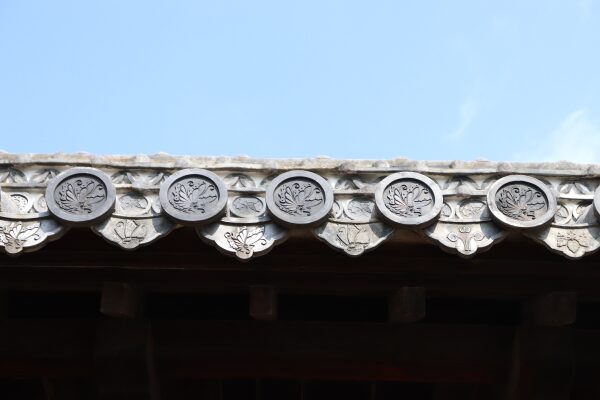
From Himeji Station, you can see the castle is just straight down the road. It only takes 10 minutes on foot. However, if you don’t want to walk, you can take a bus for 100 yen from the station to the castle.
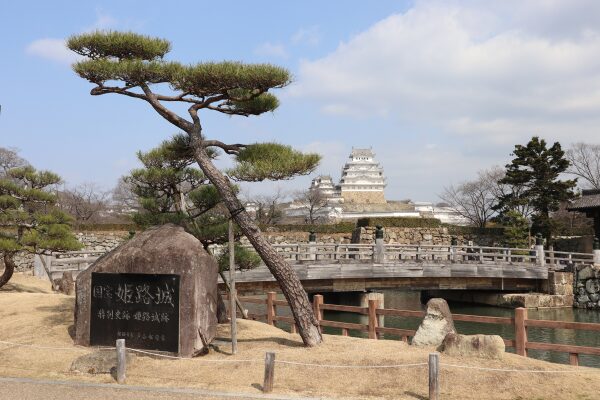
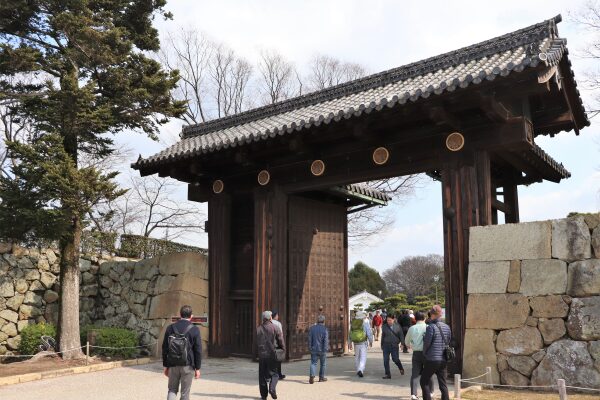
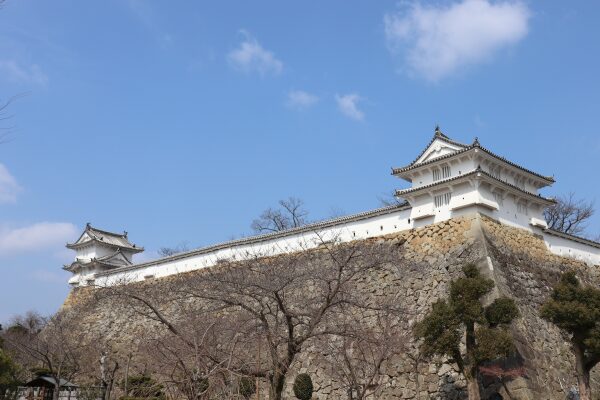
Once you enter this gate, you will see the white gorgeous keep.
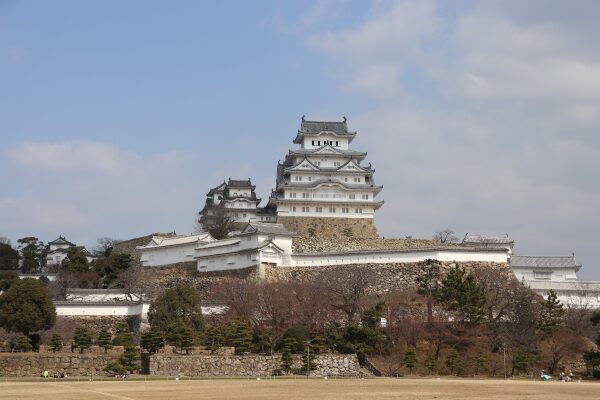
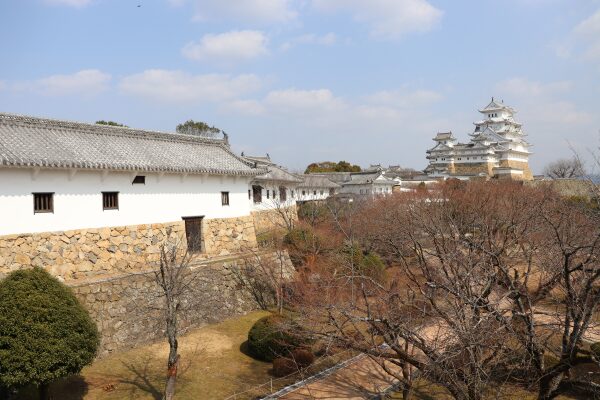
From the gate, you will head towards the main keep, but do not make a beeline for the main keep!
The most immediate thing you will notice as you enter is that the path to the main keep is not straight and you have to go a number of gates. Naturally, these are first lines of defense for the castle. The winding paths would be difficult for armed soldiers to easily progress through, and the various gate would have been guarded by archers/marksmen and booby-traps.
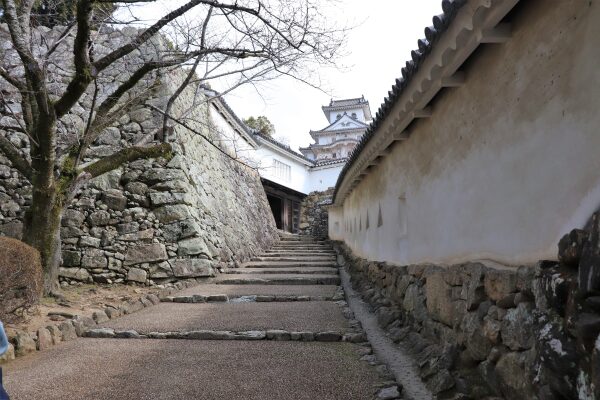
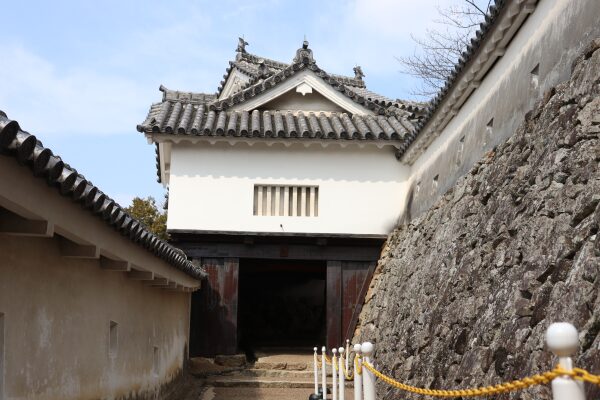
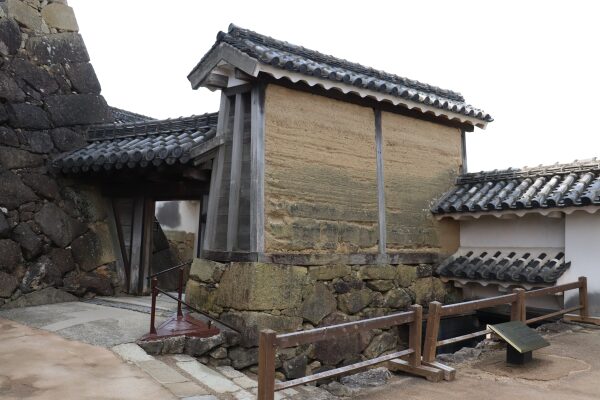
Since Himeji Castle was originally a fortress, there are many interesting traps and fortifications around the castle grounds meant to protect the castle from attacks and invasion.
Frankly the more we explored the castle, the more things we found interesting!
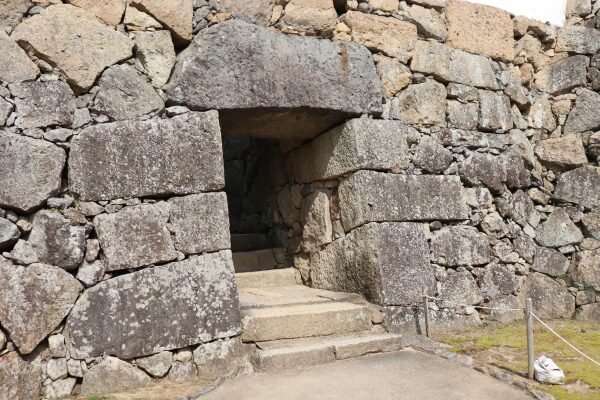
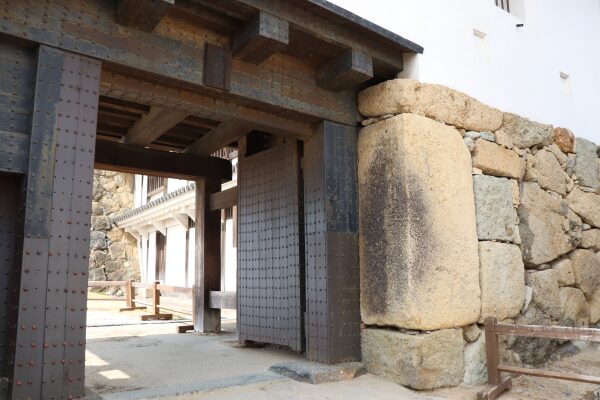
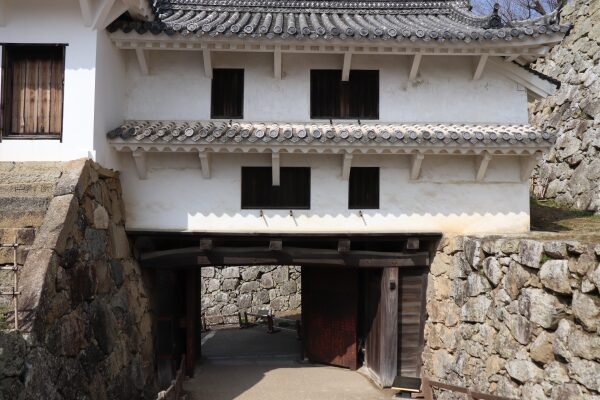
The main keep
As you can see, the main keep of Himeji Castle is the one located in the middle and appears to have 5 levels but there are actually 7, as 2 levels of the castle are underneath the visible five tiers. The main keep sits behind three smaller keeps that all connect to the main keep, helping fortify the castle.
This specific style of castle is called Renritsu Teshukaku and there are several kinds of castles in Japan. However, only Himeji Castle successfully preserves its original construction.
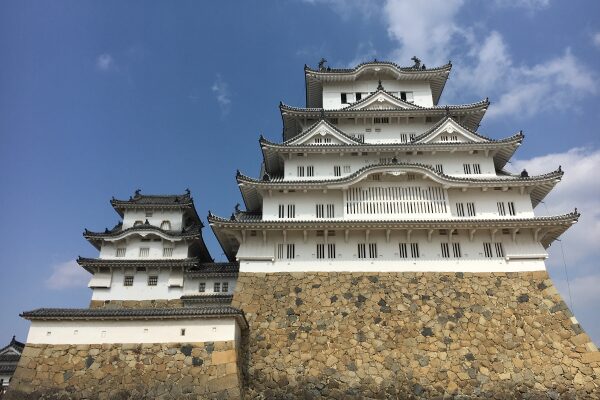
Once you reach the top floor, you can get a nice view of Himeji City.
You can see the roof tiles clearly at the top of the castle. The roof tiles are combined with white plaster, which is what gives Himeji Castle its white appearance. It takes long time to plaster all the joints of the tiles but once it is done, it is strong.
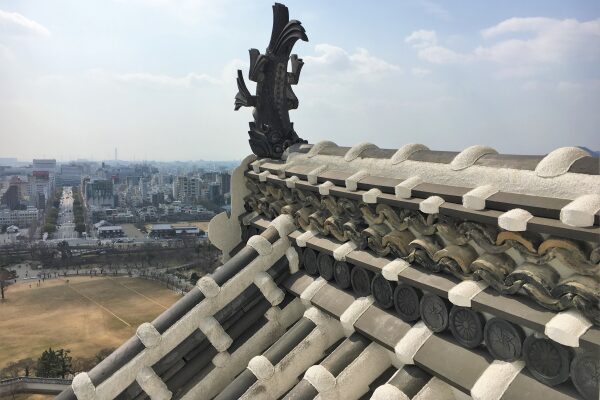
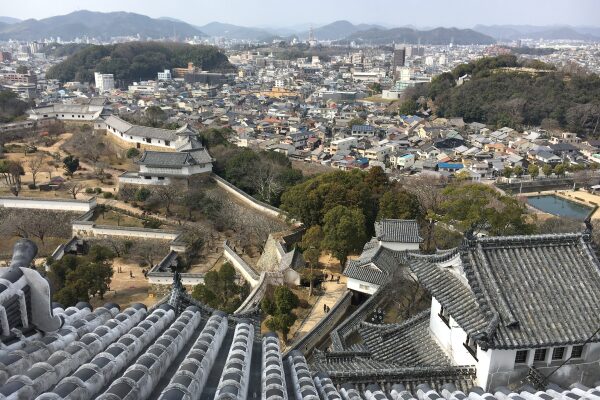
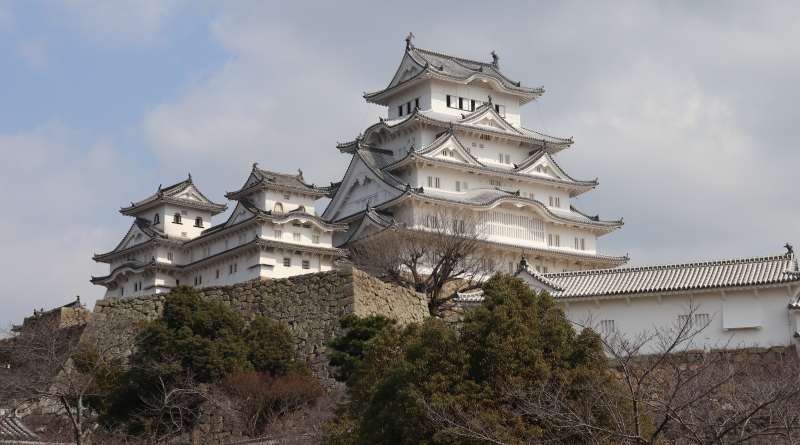
Leave a Reply